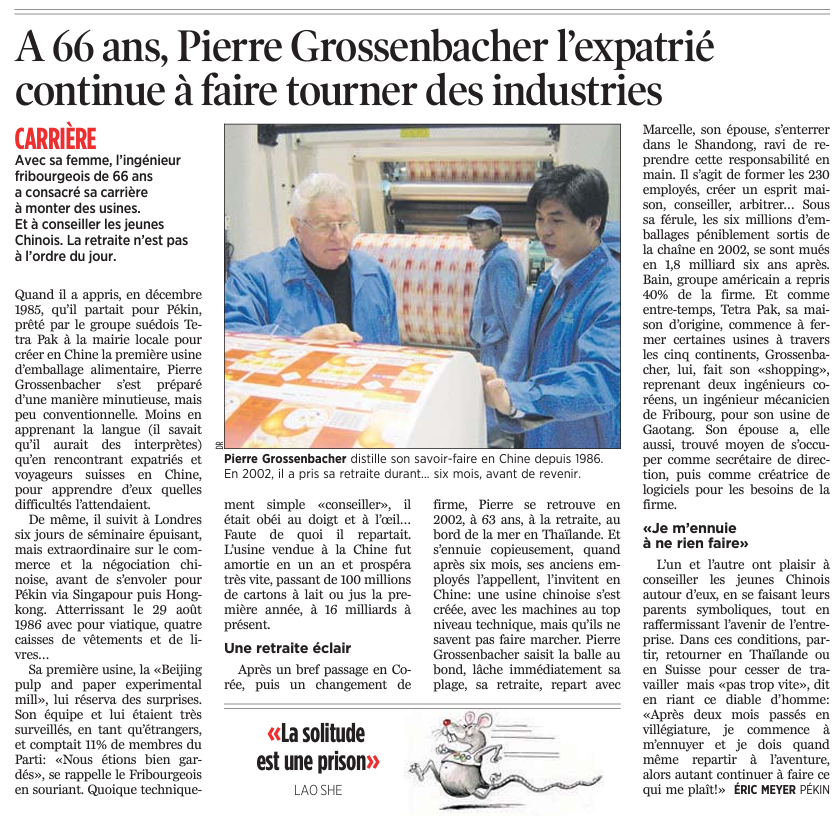

At 66, Pierre Grossenbacher, the expatriate, continues to keep industries running
With his wife, the 66-year-old engineer from Fribourg has dedicated his career to setting up factories and advising young Chinese people. Retirement is not on the agenda.
When he learned in December 1985 that he was going to Beijing, loaned by the Swedish group Tetra Pak to the local municipality to create China’s first food packaging factory, Pierre Grossenbacher prepared himself meticulously but unconventionally. Less by learning the language (he knew he would have interpreters) and more by meeting Swiss expatriates and travelers in China to learn from them what difficulties awaited him.
Similarly, he attended an exhausting but extraordinary six-day seminar in London on Chinese trade and negotiation before flying to Beijing via Singapore and then Hong Kong. Landing on August 29, 1986, with four crates of clothes and books as his only luggage…
His first factory, the “Beijing pulp and paper experimental mill,” held surprises for him. His team and he were closely monitored as foreigners, with 11% of the team being Party members: “We were well guarded,” recalls the Fribourg native with a smile. Although technically a simple “advisor,” he was obeyed to the letter… Otherwise, he would leave. The factory sold to China was amortized in one year and quickly prospered, growing from 100 million milk or juice cartons in the first year to 16 billion now.
After a brief stint in Korea and a change of company, Pierre found himself retired at 63 in 2002, by the sea in Thailand. He was thoroughly bored when, after six months, his former employees called him, inviting him to China: a Chinese factory had been created with top-level technical machines, but they didn’t know how to operate them. Pierre Grossenbacher seized the opportunity, immediately left his beach and retirement, and returned with Marcelle, his wife, to Shandong, delighted to take on this responsibility again. He had to train the 230 employees, create a company spirit, advise, and arbitrate… Under his leadership, the six million packages painfully produced in 2002 turned into 1.8 billion six years later. Bain, an American group, acquired 40% of the company. And as Tetra Pak, his original company, began closing some factories across five continents, Grossenbacher did his “shopping,” recruiting two Korean engineers and a mechanical engineer from Fribourg for his Gaotang factory. His wife also found a way to keep busy as an executive secretary and then as a software developer for the company’s needs.
Both enjoy advising young Chinese people around them, becoming their symbolic parents while strengthening the company’s future. Under these conditions, leaving, returning to Thailand or Switzerland to stop working but “not too quickly,” says this devil of a man with a laugh: “After two months of vacation, I start to get bored and I have to go back on an adventure, so I might as well continue doing what I enjoy!” ÉRIC MEYER BEIJING
Download the PDF File
080207_24HArticlePG.pdf 153.47 KB